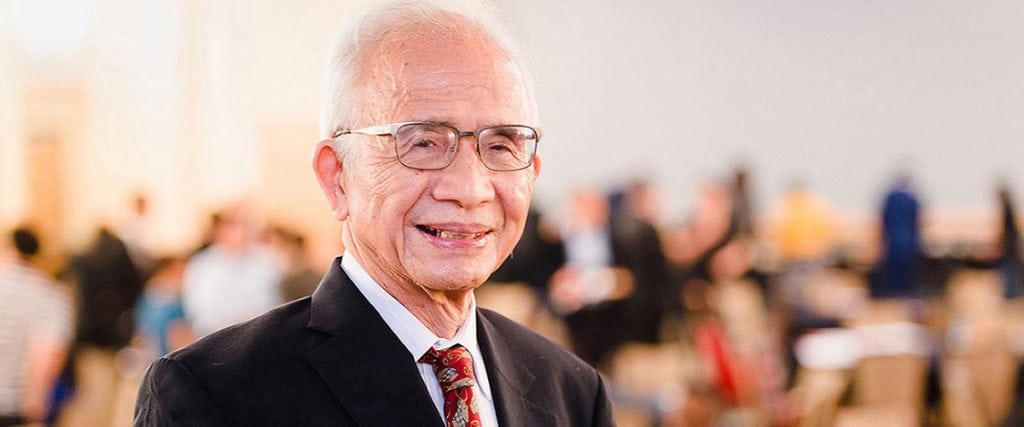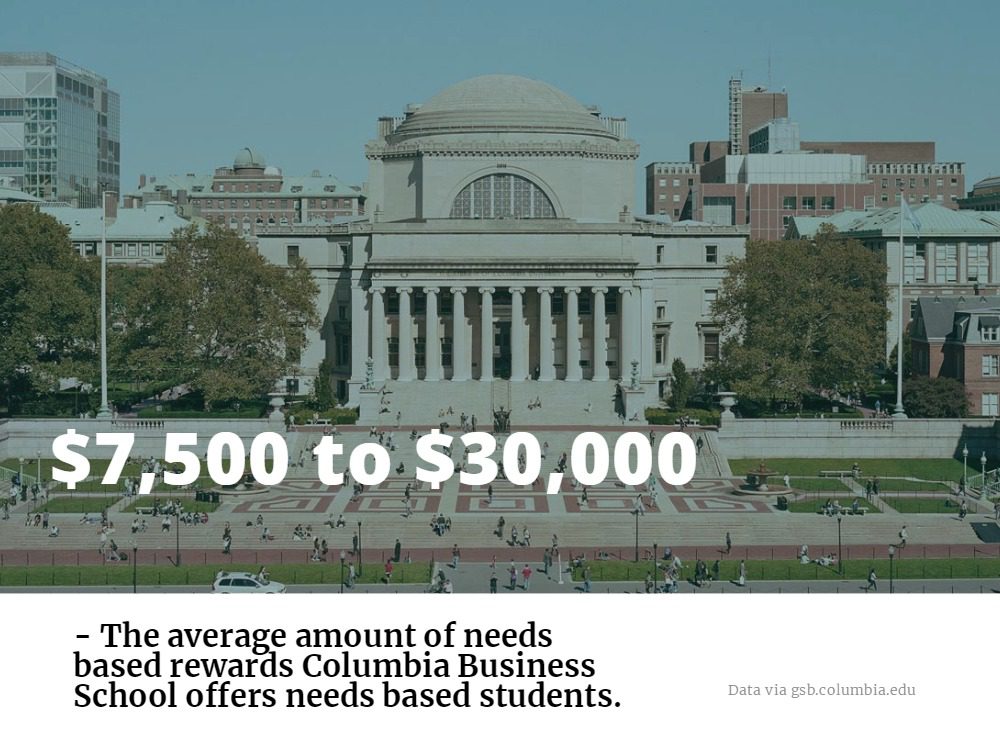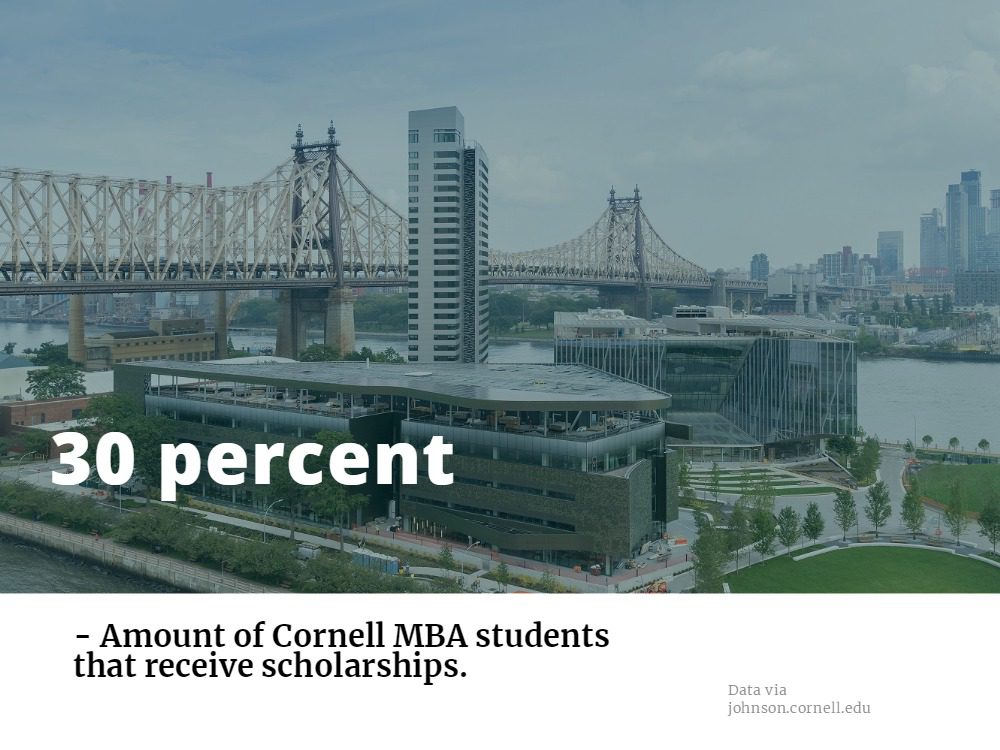3D Printing Research, Success Without Passion, and More – New York News

Let’s explore some of the most interesting stories that have emerged from New York business schools this week.
Award-Winning Paper Explores How Designers Innovate in 3D Printing Communities – Stevens Institute of Technology SOB News
In a new paper from Gaurav Sabnis, Stevens Institute of Technology School of Business Assistant Professor of Marketing, Associate Dean of Research Dr. Jeffrey Nickerson, and the University of Navarra’s Dr. Harris Kyriakou “examines knowledge reuse in 3D printing communities [where] makers often iterate on designs created by other users to create refined products.”
According to the Stevens Institute of Technology SOB News article, “the professors looked at frequently reused designs and found a few clear signals in what helps designs get shared—from a designer’s level of experience, to the amount of information she included about her designs.”
The trio’s research is among the first to properly survey 3D printing communities and it could have only happened in the interdisciplinary incubator that is Stevens. Dr. Sabnis writes, “Stevens has a great culture that leads to more interdisciplinary research. I’m excited to do the kinds of research that creates real-world solutions for businesses in the digital age.”
You can read more about the 3D printing research from Stevens here.
Reviving Grit: Columbia Business School Study Finds That In Pursuit of Success, Dedication Falls Short Without Passion – Columbia Business School News
In a new PNAS study, Columbia Business School and Frankfurt School of Finance & Management researchers found that grit “without the clear sense of direction that passion provides does not propel people forward.”
Columbia Professor and co-author Adam Galinsky writes, “We were not surprised to find that dogged dedication to an objective – without a true passion for the goal – is mere drudgery.”
“But until now, research on grit failed to factor in the propulsive force that animated grit’s perseverance. By properly incorporating passion into the grit equation, we now have evidence that people who are passionate for their goal and persevere towards it will reach higher heights.”
You can find Why Grit Requires Perseverance and Passion to Positively Predict Performance here, and discover more fro the Columbia Business School News article here.
Where Professors Share Knowledge on Issues in Finance, Economics and Accounting – Rutgers Business School News
The Livingston Student Center recently hosted the annual Conference on Pacific Basin Finance, Economics, Accounting, and Management, which was founded by Rutgers Business School Distinguished Professor of Finance and Economics Cheng-Few Lee at the business school in 1992.

Rutgers Business School Distinguished Professor of Finance and Economics Cheng-Few Lee / Photo via business.rutgers.edu
The conference assembles “finance professors from around the world” to absorb “research on a variety of issues, from financial applications of parallel processing to the ethics of cryptocurrency.”
According to the Rutgers Business School News article, “Many of the conference speakers were Professor Lee’s former colleagues or students, including professor Yong Shi, who is one of 13 advisors to China’s premier, [and] delivered a keynote address on big Data Mining and Knowledge Management.”
You can read more about the event here.
Crypto Regulation, Military Experience in Business School, and More – New York News

Let’s explore some of the most interesting stories that have emerged from New York business schools this week.
Crypto Market Raises $13 Billion Since 2014, Amid Zero Regulation – Columbia Business School News
Columbia Business School’s Thomas Bourveau recently co-authored research, which analyzed 776 initial coin offerings (ICOs) shared between April 2014 to May 2018 to reveal a number of key insights into regulating the decentralized platforms that comprise the current cryptocurrency market, as well as the “value of disclosure in this fast-growing global unregulated market.”
According to the article, the market offers “virtually zero protection for investors since issuers are not required to register with any securities market authority.” Moreover, issuers are “not required to provide periodic financial or non-financial disclosures.” Crypto market participants prefer “self-regulation” and decentralization to securities regulation, although it’s unlikely that the “ICO market will remain completely unregulated for much longer.”
The research, which was co-authored by LBS’s Emmanuel De George, the University of Utah’s Atif Ellahie and Daniele Macciocchi, highlights characteristics of successful ICOs, which includes “disclosure of the source code; provision of genuinely informative white papers; substantial social media activity; disclosure of vesting periods for founders’ tokens; and issue of tokens that are well rated by crypto-market information intermediaries.”
You can read the full article here and the full working paper here.
Applying Military Experience To a Sustainability Challenge – Johnson Business School Feed
Johnson Association of Veterans VP of Community Relations Jason Buselli (MBA ’19) recently wrote about his experience using technology to solve “security problems of the Afghan National Police” to his semester working on the KAZNET mobile crowdsourcing platform in Kenya as part of Johnson’s Sustainable Global Enterprise (SGE) immersion.
According to Buselli, KAZNET was “developed by the International Livestock Research Institute (ILRI) and funded through a USAID grant to help alleviate data asymmetry within the livestock value chain in Kenya.” Data asymmetry contributes to exploitation of small holder farmers by traders and brokers.
The platform uses “contributions from mobile users to collect, synthesize, and distribute livestock market prices.”
Buselli writes of his semester in Kenya:
“I have gained invaluable exposure to work in emerging markets, in-field consumer research, value discovery/development, market sizing, tech platform monetization, financial modeling, and implementation strategy development. I am confident that I can apply the business skills I gained through the SGE immersion to my internship [at Johnson & Johnson’s Janssen Pharmaceutical Companies] this summer.
You can read the full article here.
Summer Camp Introduces Students to World of Business – Rutgers Business School Blog
Rutgers Business School recently held its fifth annual Summer Camp, which hosted ninety high school students at its Livingston campus, over the course of seven days.
Assistant Professor of Professional Practice in Finance and Economics Ron Richter says, “The camp allows high school students to experience business and college life in a manner that allows them to make informed decisions about the next chapter in their lives.”
Yvonne Tang, a camper who took part in this year’s session, writes, “The Rutgers Business School summer camp opened my eyes to the world of adulthood and professionalism. Regardless of whether my peers decided they were interested in business, the most important part was that by the end of the week, we learned what business really meant. This learning experience is a must for anyone who thinks they’ll be interested in business.”
You can read the full article here.
What Exactly is the “Target Effect”? NYU Stern Prof Looks Deeper – New York News

Let’s explore some of the most interesting stories that have emerged from New York business schools this week.
Why It’s So Hard To Buy “Just One Thing” At Target – Refinery29
Speaking with Refinery29 writer Cait Munro, New York University’s Stern School of Business marketing professor Tom Meyvis elaborated why consumers have such a strong impulse to buy more things than they intended when shopping at a big-box store.
“Stores have an idea about the path [shoppers take],” he says in an interview. “Walmart was once famous for doing things like putting like Band-Aids next to fishing hooks and things like that. Something you don’t naturally associate, but once you see them there, it makes sense. So when people come in for something in one category, you can cross-sell, you can sell them something that compliments in the next product category by making sure they’re right next to each other.”

What is the so-called “Target Effect” that makes people buy more products than they intend to?
“Meyvis also notes that stores like Target have extensive data on which products customers typically buy together, and they’ll often employ those numbers to decide what should go where within the store’s layout. Some are obvious, like placing flip flops next to sunscreen, while others are so subtle that you might not even notice what’s going on when you pick up hot sauce and Pepto Bismol in the same motion.”
You can read more of Munro’s piece with Refinery29 here.
A Masters in Governmental Accounting? Five Reasons It’s Time to Make the Investment – Rutgers Business School Blog
Offered completely online, the Rutgers Business School Master of Accountancy in Governmental Accounting program may be perfect for working professionals “in the field of public financial management or transition to the public sector from private industry.” The school outlines five the biggest reasons why you may need to consider it, too:
- Opportunities – Projections indicates that there will be governmental vacancies galore due to the fact that “nearly a third of the government workforce will qualify for retirement.”
- More than just numbers – The interdisciplinary degree combines “public policy, public administration, ethics, government accounting, and auditing.”
- Quality instruction – Instructors include former New Jersey State Auditor Rick Fair and Dean Michael Mead, senior research manager at the Governmental Accounting Standards Board.
- Valuable connections – Rutgers “works hard to build connections with local, state and federal employers who can provide job opportunities and advancement to students and graduates.”
- Uniquely accessible – The online program means “you can benefit from the quality of instruction and the Rutgers connections … no matter where you are.”
You can read more about the RBS program here.
5G mobile Communication in China: From Imitator to Innovator – Johnson Business Feed
Baohong Li, an Associate Professor at the School of Economics and Management at the Beijing University of Posts and Telecommunications, and visiting scholar at the Emerging Marketing Institute, recently wrote a piece for the Cornell Johnson Businessfeed, in which they discussed China’s incredibly rapid mobile technology advancement and the future of 5G connectivity.
Specifically, Li laid out five reasons why China has an vastly important role in the implementation of 5G, including:
- Institutional innovation and reform
- Strategic planning and policy innovation
- Imitating innovation and gaining advantage
- Encouraging patent and international standardization
- Creating co-opetition innovation ecosystem
Click here for a more in-depth review of Li’s work.
Coffee Brains, Case Writing, and More – New York News

Let’s explore some of the most interesting stories that have emerged from New York business schools this week.
This Is Your Brain On Coffee: Beyond Health Benefits, Even the Smell May Fuel Higher Test Scores – Stevens Institute of Technology College of Business Blog
New research published in the Journal of Environmental Psychology finally confirmed your suspicion: yes, your coffee is making you smarter. Well, maybe. Science is tricky and all that.
In the research, officially released earlier this year, Stevens School of Business professor Adriana Madzharov and colleagues from Temple and Baruch found that the scent of coffee helped people perform tasks better and even improved test scores. Interestingly enough, the researchers concluded that the effect of even just smelling coffee could be as beneficial as consuming it.
“It’s not just that the coffee-like scent helped people in our study perform better on analytical tasks, which was already interesting,” Madzharov writes. “But they also thought they would do better, and we demonstrated that this expectation was at least partly responsible for their improved performance. In short, smelling a coffee-like scent, which has no caffeine in it, still has a placebo effect similar to drinking coffee.”

New research reveals that the scent of coffee can help you with daily tasks and tests, even if you do not consume it.
She adds, “This finding also has useful multiple practical implications in business for workplace professionals, architects, building developers, retail space managers and others.”
You can read the full article here.
A Rutgers Team Brings a Professor’s Lesson to Life – Rutgers Business School Blog
Rutgers Business School Professor of Marketing Can (John) Uslay recently took home first place in a recent case-writing competition put together by the University of Michigan’s William Davidson Institute.
Professor Uslay’s entry was based on Roshni Rides, a “rickshaw transportation company created and piloted by a team of Rutgers Business School students,” which won the “$1 million Hult Prize for social entrepreneurship in 2017 after a compelling presentation about how their company could help improve the lives of refugees living in the Orangi Town settlement.
Professor Uslay outlined “the challenges the team faced, specifically their effort to find a price point that would keep the cost of the service affordable and still enable the company to grow.”
You can check out the full interview with Professor Uslay here.
The Business Case for Sustainable Tourism Management of Protected Areas – SC Johnson Business Feed
Tom Olson, a recent Johnson Cornell MBA graduate, recently published an op-ed about the growing need for “developed, emerging, and frontier markets” to develop more sustainable management structures to accommodate increased tourism.
Enter the Tourism and Protected Area Specialist (TAPAS) Group; a subgroup of the International Union for the Conservation of Nature (IUCN) “dedicated to advancing sustainable tourism initiatives in protected areas.”
Olson writes that he was tasked by TAPAS Group to “analyze, develop, and recommend a revenue generation model that would be financially sustainable, align with IUCN’s values, and be accepted by the broader community of sustainable tourism professionals.”
You can read Olson’s full op-ed here.
How NYC Business Schools Help the Underprivileged Applicants

Pursuing an MBA is a shrewd move for anyone looking to earn a competitive salary right out of school. Though attending a renowned school can up the price tag of earning an MBA, it may also increase the overall return on investment. According to an article in U.S. News & World Report, “… graduates of top-tier business schools usually earn higher starting salaries than their peers who went to lower-ranked schools.”
It’s not jut the opportunity to have a lucrative job right out of school that makes a high starting salary appealing. An enviable starting salary could mean more earning potential down the line. However, a top-tier school may seem out of reach for low-income applicants. After all, how can you enjoy the return on investment if you can’t afford to invest in the first place?
Luckily, many prestigious business schools offer resources for students from different socioeconomic backgrounds. Below, we’ve outlined the resources available for low-income applicants at five of New York City metro’s best business schools.
How NYC Business Schools Help the Underprivileged
Columbia Business School
Columbia Business School offers need-based awards to many students, which may result in anywhere from $7,500 to $30,000 in tuition support. Nearly half of applicants receive need-based scholarships, which are automatically renewed at the start of the second year. Columbia students can also apply for private and federal loans. To create incentive for students to choose careers in public and nonprofit fields, the school offers a Loan Assistance Program for students who utilize their education to pursue these paths. Students are eligible to apply for this program for up to five years after graduation. Depending on the extent of students’ debt, they may receive anywhere from $2,000 to $10,000 of annual support. Columbia students may also receive merit-based scholarships, such as the Columbia Fellows Program, which may cover full or partial tuition and is granted to applicants with an outstanding track record in leadership and creativity.

Stern School of Business—New York University
NYU’s Stern School of Business offers a variety of scholarships for high-achieving applicants. According to the school’s website, nearly a quarter of students who enter the full-time MBA program receive a merit-based scholarship. There are also additional merit-based opportunities for students coming from different backgrounds and perspectives. Scholarships like the Advancing Women in Business Scholarship and the Forte Fellowship are particularly geared toward female-identifying students, to support women in business. The ROMBA Fellowship aims to help LGBTQ students succeed in business education. The Consortium Fellowship exists to increase the number of minorities such as Hispanic Americans, Native Americans, and African Americans in business school as well.
Gabelli School of Business—Fordham University
At the Fordham University Gabelli School of Business, graduate students may be eligible for federal financial aid, merit scholarships, or a variety of graduate assistantships. Awards based on academic excellence range from $10,000 to full tuition. Exceptional students may be eligible for awards like the Dean’s Premier Scholarship, which includes a $20,000 living stipend, and may include a stipend toward one of Fordham’s global programs. Students can also apply for a plethora of need/merit-based scholarships, like the Hitachi Diversity and Inclusion Scholarship, which seeks to help underrepresented minorities finance their education.
Rutgers Business School, Newark and New Brunswick
The Financial Times ranked Rutgers Business School among the top 50 MBA programs for return on investment in 2017, citing a 130 percent increase in salary for students within three years of completing their degree. Moreover, the school’s website states that, “More than 80 percent of Rutgers students receive some form of financial aid.” Moreover, at $31,011 per year (not including fees), this program is far more affordable than many other prestigious schools. Students can apply for federal or private loans, grants, and an array of scholarships. In addition to the awards offered by the Rutgers Business School Graduate Scholarship Fund, the Rutgers website lists 30 fellowships, scholarships, and partnerships. The Ralph Bunche Fellowships, for example, provide tuition remission, and a $15,000 living stipend to minority students from disadvantaged socioeconomic backgrounds.
SC Johnson Graduate School of Management—Cornell University
Around 30 percent of entering the SC Johnson Graduate School of Management students receive some level of scholarship support. Scholarships like the National Society of Hispanic MBA’s (NSHMBA) and the TOIGO Fellowship specifically seek to help underrepresented minorities. The MD MBA Dual Degree Program and Lee Family Scholarship supports students on the rigorous path to receive their MD/MBA. Additionally, Cornell’s Park Leadership Fellows Program awards full tuition to up to 25 MBA applicants annually. The award is granted based on personal and professional achievements, academic performance, social contributions, and leadership. Students can also apply for federal and private loans.

